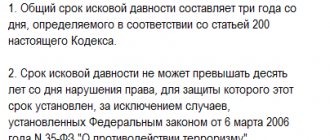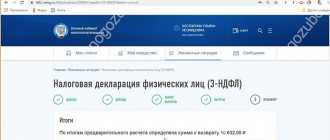How can you challenge a will?
An inheritance document is a one-sided transaction, an expression of a person’s free will. Like any transaction, a will can be questioned. It is possible to challenge a will only by contacting a judicial authority.
The law of the Russian Federation outlines a range of special conditions establishing in which cases a will is contested. These include information established by forensic experts, confirming that at the time of drawing up the will, the testator could not fully control his actions.
It is difficult to determine the mental disorder and deviations in the behavior of the testator. For this purpose, the court orders post-mortem forensic psychiatric examinations at the request of the interested party.
As part of the examination, medical documents will be needed to determine whether the testator fully understood his actions when drawing up a will or not? If experts determine that there was no will at the time the document was drawn up, the court will declare the will invalid.
Collection of evidence
Having determined the circle of people who can challenge a will for apartments or other property, it should be said about the need to collect significant evidence.
Each life situation is individual, and the evidence that needs to be collected depends on it. This subsection describes the most common situation that is used to revise a will: people are trying to prove that the testator was not responsible for his actions at the time of drawing up the document and was insane. Since a will can be contested only after the death of the testator, a post-mortem examination of the testator’s state of mind and health is carried out. Analyzed:
- the results of medical examinations of the testator during the period of drawing up and certification of the document (if any);
- medications prescribed to the pensioner, their effect on his psyche and mind, possible side effects;
- medical examinations, laboratory tests, etc.
Based on the data received, the court assesses the condition of the testator when signing the will. If insanity is proven, the document will be declared invalid.
The use of witness testimony is indirect evidence that complements the main one. Such persons can be relatives and people who are not interested in the outcome of the process: neighbors, acquaintances who noticed unusual or inappropriate behavior of the testator.
Another additional evidence of the sanity or insanity of the testator may be documentation from dispensaries in which he was treated for psychiatric diseases. The testimony of a psychiatrist and the provision of a completed patient record are a weighty argument in court proceedings.
How to challenge a will after death?
You can challenge a testamentary document when an inheritance opens. In other words, a will is contested only after the death of the testator; the heirs had no idea about it before.
For relatives concerned about whether a will can be challenged after death, information is provided on the types of invalid wills:
- Void - invalid from the moment of creation, regardless of the court decision. These wills were drawn up in gross violations of legal norms. They have no legal force, and it is impossible to solve this problem through the courts.
- Disputable - affect the interests of other heirs. The court recognizes them as invalid in whole or in part for various reasons.
How long does it take to challenge an inheritance?
Reference. A will is a transaction concluded unilaterally. It does not imply the consent of the persons in respect of whom it is concluded.
As a result of drawing up a will, civil legal relations arise after the death of the testator (Part 5 of Article 1118 of the Civil Code of the Russian Federation).
Based on Art. 181 of the Civil Code of the Russian Federation, the statute of limitations applies to a will.
The statute of limitations is a period of time provided by law for the protection of a violated right.
The law provides:
- 1 year – for voidable transactions;
- 3 years – for insignificant transactions.
Contested wills are invalidated only in court.
Void transactions are documents executed in violation of the law. They are invalid regardless of the court decision.
A will is contested only by an individual whose rights are infringed. This can be done when the inheritance is open and other heirs have assumed rights in accordance with Art. 1131 Civil Code of the Russian Federation. Until the opening of the inheritance, there is no subject of dispute.
Procedural features
Interested parties, including legal heirs, have the right to file a claim. The defendants in disputes will be the persons who received the inheritance.
When a claim is made to annul a will, the application is filed based on the location of the defendants—those persons who received the inheritance. If the claim contains demands to recognize ownership of any property, the application is submitted at the location of the property (exclusive jurisdiction).
In addition to the claim, documents confirming payment of the fee are submitted to the court. Evidence that, according to the plaintiff, confirms the invalidity of the will.
Article 1131 of the Civil Code of the Russian Federation determined with regard to inheritance under a will, who can challenge the document - these are the heirs by law, whom the Civil Code of the Russian Federation classifies as the first priority. Persons who could count on inheritance in the absence of a testamentary document. Can other heirs challenge the will? Yes, they can, if there are no heirs of the previous line.
How to restore the lost appeal period?
Attention! By law, the heir has six months to enter into property rights of inheritance (Article 1154 of the Civil Code of the Russian Federation). During this period, it is necessary to submit an application to the notary and take care of the inheritance left behind.
If for some reason the citizen was not aware of the death of the testator, other relatives may take over the rights of inheritance, or the inheritance will go to the state as escheated.
There are two ways to restore the lost time:
- Conciliatory - it is necessary to obtain the written consent of all persons who accepted the property as an inheritance, which is registered by a notary or an authorized official. The notary who handled the inheritance case cancels the issued certificates and issues new ones. In this case, a court decision is not required.
- Judicial - if an agreement between the parties is not reached, then a statement of claim should be filed with the court to restore the deadline for accepting the inheritance.
The statement of claim is filed with the district or city court at the place of last registration of the testator in the form provided for in Art. 131 of the Civil Procedure Code of the Russian Federation, a person who did not enter into inheritance on time.
If the last place of registration has not been established or is located outside the Russian Federation, the claim is filed at the location of the most valuable part of the testator’s movable and immovable property.
The defendants in the claim will be the persons who have entered into inheritance rights or the person managing the escheated property. The notary is the third person on whose territory the inheritance is opened.
A positive court decision depends on the following conditions:
- the plaintiff did not know and could not have been notified of the death of the testator;
- the presence of valid reasons and provided evidence of the legality of the requirements;
- the statement of claim was filed after the reasons for missing the deadlines have been eliminated, but no later than 6 months.
Reference. If the claims are satisfied, the previously issued certificate of inheritance is declared invalid, the property is redistributed and changes are made to the rights registration records.
Let us remind you that there is a six-month period after the death of the testator to enter into inheritance rights. If there are doubts about the legality of a document, it is advisable to challenge it within the specified period. After six months, the testator’s property will pass to the new owners, who will dispose of it at their own discretion.
If the decision to contest the will is positive, it will be difficult to return the property or receive monetary compensation.
In what cases is a will contested in court?
Civil law determines which will can be challenged and also provides for a number of conditions, non-compliance with which can easily cast doubt on the validity of the will. As a result, challenging such a will will not be difficult.
These conditions are provided for by Chapters 9 and 62 of the Civil Code of the Russian Federation:
- The testator at the time of execution of the inheritance document has legal capacity; in relation to him there should be no court decisions limiting his legal capacity in whole or in part.
- When making a will, a person must direct his actions, have a sound mind, not be under the influence of alcohol or drugs, or take psychotropic drugs and other medications that affect consciousness.
- The potential heir should not offer the testator any material benefits in exchange for drawing up a testamentary document in his favor.
- The testator must not be subjected to threats, deception or other violence. The document is drawn up by him voluntarily and fully reflects his will, and not under the influence of fear.
- During the registration process, gross errors or violations of the law were made.
How to calculate the limitation period
The calculation and application of the limitation period in inheritance disputes is one of the complex legal aspects. And the day of opening of the inheritance (the day of death of the testator, recorded in the death certificate or in the court decision declaring him dead) is not always the beginning of this period. Therefore, I will try to “sort everything out.”
From what moment does the countdown begin?
In disputes about inheritance, the beginning of the term is considered to be the day when the heir meets under the combination of the following conditions - clause 1 of Art. 200 Civil Code of the Russian Federation:
- Learned or should have learned about a violation of your rights.
- I also found out who is the proper defendant in the lawsuit to protect this right.
When determining this day, the following nuances should be taken into account:
- If the plaintiff learned about the violation of his right not on the day of its violation, but at a later moment, he must prove this circumstance. The fact that a person has already learned about a violation of his rights may be evidenced by documents or testimony of witnesses.
- The expression “should have known” means that there is no direct evidence that the plaintiff knew, but under certain circumstances it simply could not have been otherwise.
- The proper defendant is the person who violated the rights of the plaintiff or is a participant in the disputed legal relationship. Such persons may be other citizens, other heirs, a notary, the state represented by a local government body, the Federal Property Management Agency or the tax authority.
- Courts considering disputes arising from inheritance legal relations usually rule that the plaintiff himself must take measures to clarify the issue of the proper defendant.
- If the defendant turns out to be improper, the court may allow his replacement to be proper. Only after such a replacement, preparation and consideration of the case are carried out from the very beginning.
- The plaintiff has the right to declare disagreement with replacing the improper defendant with another person. Here the court must consider the case based on the claim.
What are the rules for calculation?
These rules are as follows - Ch. 11 Civil Code of the Russian Federation:
- The countdown starts from the next day after the occurrence of the event that determines the beginning of the period.
- If the term is calculated in years, then it expires on the corresponding month and date of the last year of the term.
- If the last day of the term falls on a holiday/non-working day, the end date will be the nearest working day.
- The period ends from the date of application to the court for protection of the violated right. Such a day is the day of filing a statement of claim in court (including on the Internet) or its acceptance by a postal organization.
- The flow is suspended when a state of emergency occurs, the plaintiff is in the armed forces under martial law and other circumstances - Art. 202 of the Civil Code of the Russian Federation.
How does the statute of limitations apply?

The heirs have the right to go to court even if the statute of limitations has long expired. In such a situation, the rules apply - Art. 199 Civil Code of the Russian Federation:
- The court is obliged to accept the application regardless of the expiration of the deadline.
- The court can apply the limitation period only upon the application of a party to the dispute.
- Statements by third parties (the wrong party) about expiration are not grounds for dismissal of the claim.
- The expiration of the limitation period at the request of the other party is an independent basis for refusal of the claim. Those. the court does not need to examine other circumstances of the dispute.
Is it possible to restore the term by inheritance?
General and special terms can be restored in exceptional cases - for objective, valid reasons. The burden of proving their validity rests with the person bringing the claim.
Circumstances related to the personality of the person applying for the restoration of the term of the heir are considered valid - Art. 205 Civil Code of the Russian Federation:
- Serious illness.
- Helpless state.
- Illiteracy.
- Others - the list is open.
Important! The reasons for omission must have occurred within the last 6 months of the statute of limitations. The limitation period of 10 years is the limit and cannot be restored, but the rule applies provided that the other party to the dispute has declared its expiration.
How to draw up a will so that it is not contested?
When understanding the question of whether it is possible to challenge a will after the death of the testator, keep in mind that if the will is challenged by interested parties and the judicial authority revokes it, there are two possible scenarios:
- The document that was created earlier (the previous will) will come into force.
- The property will pass to the heirs who have the right to receive it by law.
As a result, the persons specified in the will will lose their rights to inheritance. The exception is situations when they are included in the circle of heirs by law.
A serious approach to drawing up an inheritance document will help you avoid problems in the future. It is necessary to take measures that will protect against recognition of the security as invalid after the death of the testator.
- Provide video or audio recording of the will process. Such video or audio evidence will confirm that the testator wrote a testamentary document voluntarily.
- Invite witnesses. The presence of outsiders, not interested persons at the time of drawing up the will, will make it possible to confirm the circumstances of its drawing up in court. Personal information of witnesses, as well as their signatures, must be reflected in the will.
- Obtaining certificates from medical. institutions (psychoneurological and narcological dispensaries). The presence of these documents will not make it possible to question the adequacy of the testator’s perception.
Other means of protection are also used; the civil legislation of the Russian Federation does not contain any prohibitions in this regard. The only condition is that they must not infringe on the rights of the testator or his possible heirs.
How do grounds influence?
If there are grounds specified by law, the statute of limitations can be restored.
Important! It is possible to challenge a will only after the death of the testator.
Grounds for challenging the right to inheritance:
- Violations were made during the execution of the document: errors, erasures, information over the main text, notarization of the will was ignored, etc.
- The incapacity of the testator, confirmed by a medical certificate or testimony.
- A will, including one for real estate, was drawn up and signed under the threat of using physical force or psychological pressure on the testator.
- The rights of dependents and disabled people, who are entitled to the allocation of 50% of the obligatory share, are violated, even if the inheritance has already been distributed. Based on a court decision, the shares will be redistributed in favor of the above persons (Article 1149 of the Civil Code of the Russian Federation).
- The heirs doubt the authenticity of the document (Article 1130 of the Civil Code of the Russian Federation).
Read more about what cases you can challenge a document and how to do it here.






